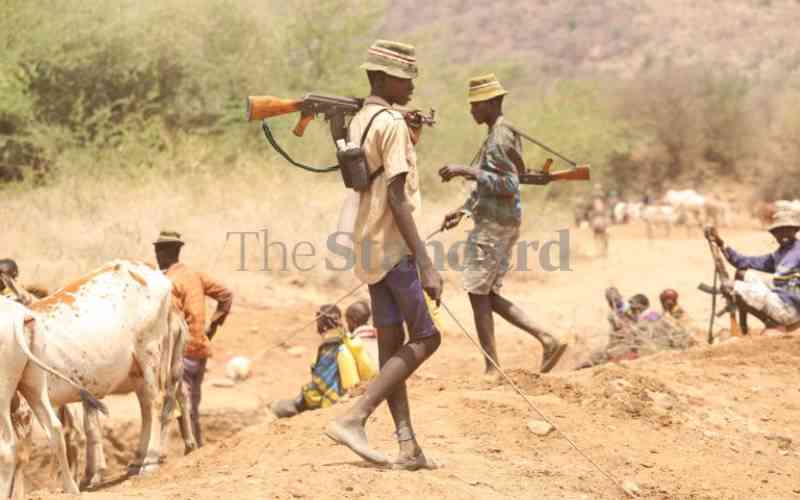×
The Standard e-Paper
Smart Minds Choose Us

In the last few weeks, attacks by bandits on both civilians and police officers have been on the increase in the North Rift.
These gun-wielding cattle rustlers have shown open defiance to the government. Social media is awash with memes making satirical statements about the Interior Cabinet Secretary's ability to deter these bandits.